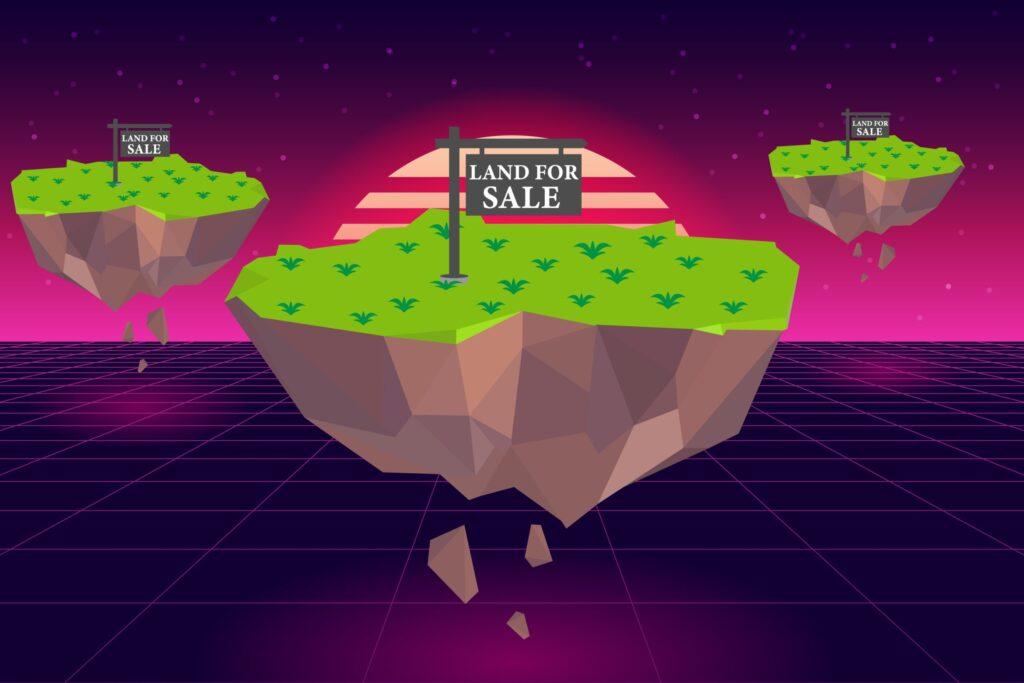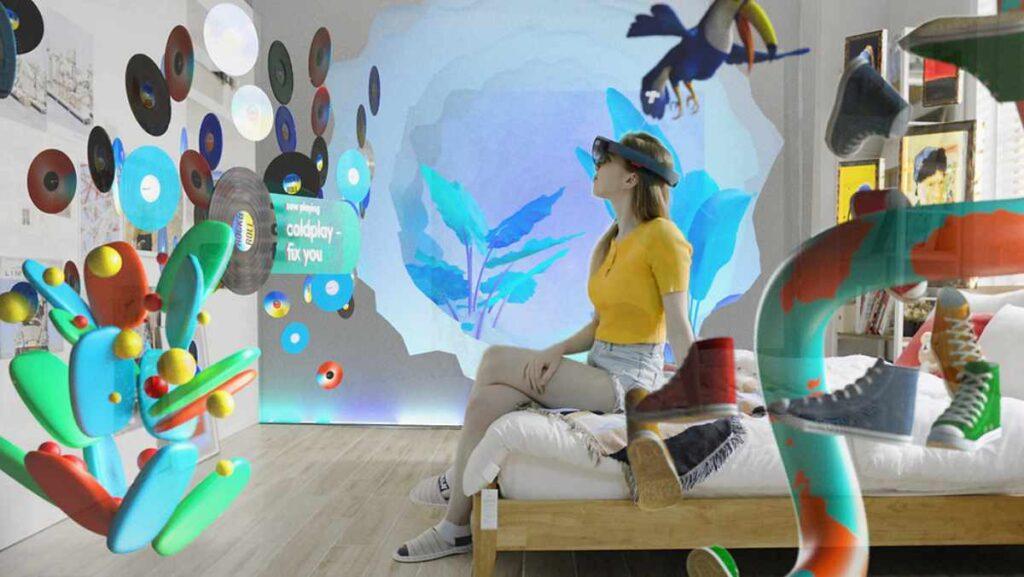The Metaverse an immersive online world
£1.75 bn has been spent on virtual land in the past 12 months, as people and companies race to get a foothold in the metaverse.
However, we are still years away from the metaverse being a single immersive online world where individuals may live, work, and play in virtual reality. So, is the land grab a huge bet? Angie Taylor’s avatar is not your ordinary land tycoon. She is, however, one of an increasing number of people claiming new virtual worlds.
“I spent around £1,500 for my first metaverse shipment in July 2020. I purchased it not just to display my own work, but also to host metaverse events that would promote both my art and the art of others “she claims.
Angie’s plots are around the size of a small family home (if you compare them to the size of her avatar). The highest building has three stories and a roof terrace with a white-and-black-striped road crossing and a pink taxi that drives back and forth for pleasure.
But flying gives you a feeling of the immensity of the globe. “Hold down the F key and you can soar up to see around my neighborhood,” Angie adds. Thousands of similar boxes of land extend to the horizon over her gallery.
$1.93 billion in bitcoin has been spent on virtual land
Voxels is one of several virtual worlds that call themselves metaverses. It’s perplexing since people frequently refer to “the metaverse” as if there were just one. Companies are selling land and experiences in their own versions until one platform takes over or these various realms merge.
According to researchers at metaverse analysts DappRadar, $1.93 billion in bitcoin has been spent on virtual land in the last year alone, with $22 million of that spent on about 3,000 parcels of land in Voxels. DappRadar can monitor this since Voxels is based on the Ethereum cryptocurrency system, in which every transaction, like other virtual currencies, is registered and published on a public blockchain.
The cartoony Decentraland is one of the most popular worlds. Since its inception in 2020, portions of land there have sold for hundreds, if not millions, of dollars. Samsung, UPS and Sotheby’s are among those who have bought land and built shops and visitor centres there.

Philipp Plein also owns land the size of four football fields, which it hopes will ultimately house a metaverse store and gallery. Mr Plein, the owner, claims his mother is not convinced by his $1.5 million purchase. “‘What did you do?’ my mum inquired. Why? ‘Are you insane? Why do you spend so much money on this?’ “he claims Mr Plein has been selling products online in 24 different cryptocurrencies for over a year. Earlier that year, in 2022, he launched a new shop on London’s Old Bond Street, offering apparel and certain non-fungible tokens (NFTs) in return for cryptocoins such as Bitcoin and Ethereum, as well as pounds.
Creating experiences to sell and advertise
He argues that opening the business helped him understand more about the metaverse, and he adds, “I took a risk by investing so much money on a piece of land.” But I was thinking that I’ve been with my brand for over 24 years, and what would I have to do if I had to start again?” However, because of the general decline in the value of cryptocurrencies, DappRadar reports that metaverse real estate values are approaching a one-year low.
Adidas, Atari, Ubisoft, Binance, Warner Music, and Gucci are just a few of the corporations buying land and creating experiences to sell and advertise their products and services in Sandbox, another crypto metaverse. Gucci has also included Roblox, which, along with other popular gaming platforms such as Minecraft and Fortnite, is regarded as the most mainstream of the budding metaverses.
These gaming firms do not sell land and do not employ blockchain technology. They do, however, already contain some of the fundamental characteristics that sci-fi writers claim are required for a real metaverse: 1 The capacity to socialize and play. 2 They have their own in-world currency. 3 The possibility of making money on-platform. 4 Massive, vibrant communities.
Gucci Town has had over 36 million visitors in the year since it opened, while Nike Land has had over 25 million in 11 months. In Gucci Town, gamers may spend real money on apparel for their avatars. They can get T-shirts and sneakers for their avatars in Nike Land by earning points by playing games.

Startup just received $14 million in backing from investors
Fashion appears to be the industry most eager to capitalize on the metaverse’s benefits and threats. Online-only fashion house The Fabricant, located in Amsterdam, solely creates clothes for avatars, creating collections and unique items for Decentraland, Sandbox, and other crypto metaverse users.
“When we first started, many laughed at us, asking, “Why would you need this?” However, we were convinced that in the future, people will wear digital objects “Amber Jae Slooten, co-founder and lead designer, adds.
The startup just received $14 million in backing from investors who believe that many of us will soon be spending part of our lives in the metaverse. However, it is unclear whether or not this will occur. The crypto metaverses are often sparsely inhabited and are only truly used when events take place, and even then, only thousands, rather than millions, of people attend.
Even in the virtual realm, where Meta, the owner of Facebook and Instagram, is pouring billions of dollars, leaked documents suggest that individuals are not staying long.
There will undoubtedly be a large market for this because the younger generation already plays games. There is no distinction between virtual and real for them. However, it must still be constructed.